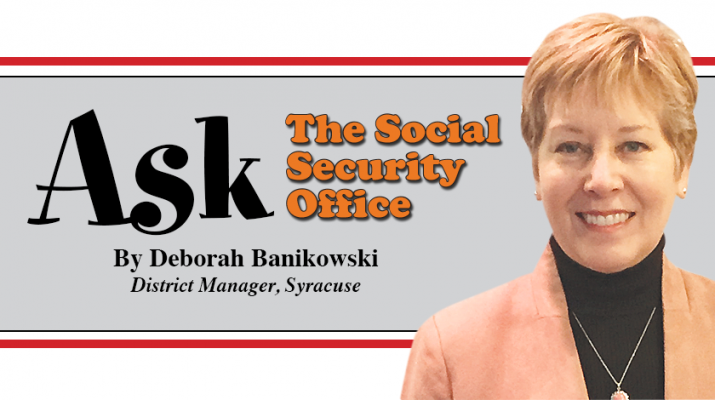By Deborah Banikowski
District Manager, Syracuse
Getting your newborn a Social Security number is important. If your child is born in a hospital, the easiest way to secure a Social Security number is when you give information for your child’s birth certificate. If you wait to apply for a number at a Social Security office, you may encounter delays while we verify your child’s birth certificate.
When you give information for your child’s birth certificate at the hospital, you’ll be asked whether you want to apply for a Social Security number for your child. If you say “yes,” you need to provide both parents’ Social Security numbers, if you can. Even if you don’t know both parents’ Social Security numbers, you can still apply for a number for your child.
There are many reasons why your child should have a Social Security number. You need a Social Security number to claim your child as a dependent on your income tax return. Your child may also need a number if you plan to:
• Open a bank account for your child.
• Buy savings bonds for your child.
• Get medical coverage for your child.
• Apply for government services for your child.
You can read more about Social Security numbers for children at www.ssa.gov/pubs/EN-05-10023.pdf.
Share this information with people who are expecting a child. Applying for a Social Security card at the hospital will save them time and let focus on the new member of their family.
Q&A
Q: When a person who has worked and paid Social Security taxes dies, are benefits payable on that person’s record?
A: Social Security survivors benefits can be paid to:
• A widow or widower — unreduced benefits at full retirement age, or reduced benefits as early as age 60;
• A disabled widow or widower — as early as age 50;
• A widow or widower at any age if he or she takes care of the deceased’s child who is under age 16 or disabled, and receiving Social Security benefits;
• Unmarried children under 18 or up to age 19 if they are attending high school full time. Under certain circumstances, benefits can be paid to stepchildren, grandchildren, or adopted children;
• Children at any age who were disabled before age 22 and remain disabled; and
• Dependent parents age 62 or older.
Even if you are divorced, you still may qualify for survivors benefits. For more information, go to www.socialsecurity.gov.
Q: I receive retirement benefits, but I also still work. How much can I earn and still collect full Social Security retirement benefits?
A: Social Security uses the formulas below, depending on your age, to determine how much you can earn before we must reduce your benefit:
• If you are younger than full retirement age: $1 in benefits will be deducted for each $2 you earn above the annual limit.
• In the year you reach your full retirement age: $1 in benefits will be deducted for each $3 you earn above a different limit, but we count only earnings before the month you reach full retirement age.
• Starting with the month you reach full retirement age: You will get your benefits with no limit on your earnings.
Find out your full retirement age at www.socialsecurity.gov/pubs/ageincrease.htm.
Q: Why should I sign up for a My Social Security online account?
A: My Social Security gives you a personal online account you can securely use to check your Social Security information and do business with us. With a My Social Security account you can:
• Keep track of your earnings and verify them every year;
• Get an estimate of your future benefits if you are still working;
• Get a replacement Social Security card if you meet certain criteria;
• Get a letter with proof of your benefits if you currently receive them; and
• Manage your benefits:
– Change your address or telephone number;
– Start or change your direct deposit;
– Get a replacement Medicare card; and
– Get a replacement SSA-1099 or SSA-1042S for tax season.
To find all of the services available and set up an account, go to www.socialsecurity.gov/myaccount.

